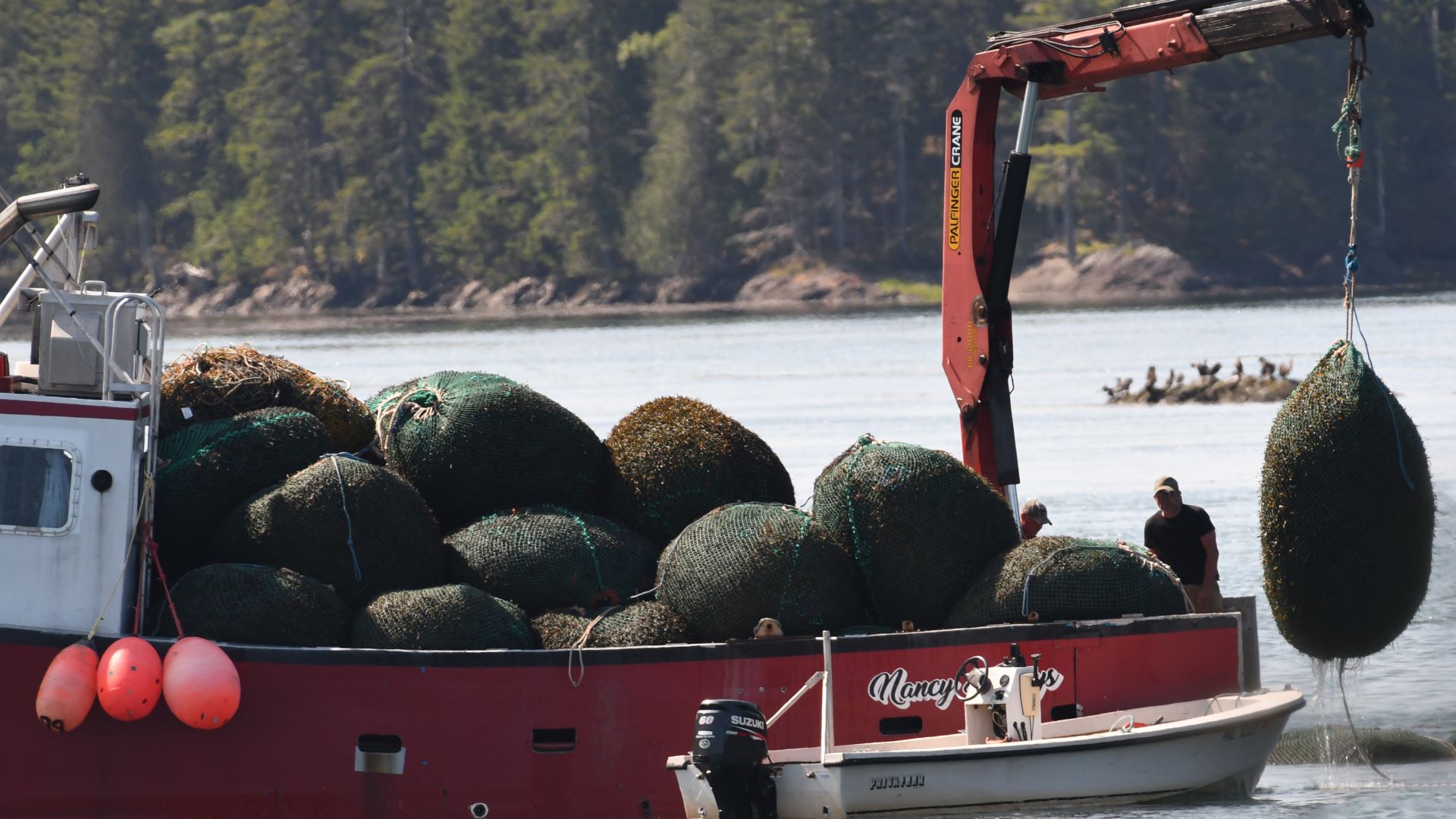Four charges brought against an Eastport man for illegally harvesting rockweed in Cobscook Bay were dismissed in Machias District Court on December 4.
James Young had faced two charges of harvesting rockweed in closed conservation areas and two charges of theft for harvesting rockweed without the permission of the upland landowner.
The dismissal of the cases, though, is not expected to affect the controversy over access to the intertidal zone for rockweed harvesting, as it was based on the particular circumstances for each of the charges, and state officials say they will continue to enforce Maine’s rockweed harvesting laws.
While the court charges that were dismissed could have resulted in license suspension and a $1,000 fine for each charge, Young’s license was suspended for a year by the commissioner of marine resources in a separate process from the court case.
Young was licensed to harvest rockweed in Cobscook Bay, which is governed under the Cobscook Bay Rockweed Management Area law. Harvesters must submit an annual harvest plan to the Maine Department of Marine Resources and are allocated sectors from which they may take up to 17% of the harvestable biomass.
Young’s approved plan for 2023 allowed him to take rockweed from 12 sectors, including The Falls, which covers the area near Falls Island, a conservation area.
Under state law, harvesting is not allowed in conservation areas, state parks and federally owned lands. In addition, the Maine Supreme Judicial Court ruled in 2019 that rockweed is the private property of the adjacent upland landowner, so that landowner permission is required for any harvesting on private lands.
“I’m not a rogue pirate,” Young noted. “I’ve done my research” about where harvesting is allowed in Cobscook Bay. “I tried to do the best I could.”
The conservation areas where Young was charged with illegally harvesting rockweed are Falls Island and the adjacent Long Cove, but Young says the maps provided by the Maine Department of Marine Resources (DMR) did not show where he was harvesting as being closed conservation areas.
As for the two theft charges, he says the deeds of the upland landowners do not “give them rights to the property” where he was harvesting and “didn’t say they own to the low-water mark.”
“There was a clear reason that they dropped all of the charges,” Young said, noting that he was being pushed to plead guilty.
Assistant District Attorney Norman “Toff” Toffolon agrees with Young that one of the factors taken into consideration to have the charges dismissed was that the deeds of the upland property owners do not specify that they own to the low-water mark.
He said the decision to have the charges dismissed was reached “after a number of conferences with the trial judge and consultation with the Office of the Attorney General and the Marine Patrol. In the end, it was decided that given the myriad of legal issues that attached, it was not an appropriate series of cases to pursue, and it was unlikely that the state could secure convictions.”
As for whether the decision to dismiss is in alignment with the state supreme court’s 2019 ruling, Toffolon says, “While the Maine Supreme Judicial Court’s tidal lands decisions were considered, I cannot tell you whether the decision to dismiss was directly aligned with the law court’s decisions, because I do not believe that the court has had the opportunity to address the issue squarely.”
Jeff Nichols, communications director for the DMR, says that the decision will not be appealed and that the dismissal of the charges will not affect how the Marine Patrol enforces the state’s rockweed harvesting laws in the future. He also believes that the supreme court “was clear on ownership” of rockweed in its 2019 ruling.
However, Toffolon notes that there is a bill that will be considered during this legislative session concerning rockweed ownership that “will clarify the law surrounding rockweed harvesting.”
Senate President Troy Jackson’s proposal would allow for the harvesting of seaweed in the intertidal zone without requiring landowner permission. There have been a number of bill proposals in the past few years concerning the rockweed ownership question, but none have been approved in the legislature.
In its ruling, the state supreme court had found that “rockweed attached to and growing in the intertidal zone is the private property of the adjacent upland landowner. Harvesting rockweed from the intertidal land is therefore not within the collection of rights held in trust by the state, and members of the public are not entitled to engage in that activity as a matter of right.”
While a colonial ordinance provides that the public has rights to fishing, fowling and navigating in the intertidal zone, advocates of protecting rockweed for its ecological role in near-shore ecosystems have noted that seaweeds are not fish.
Noting that he “is biased,” Young says he believes that rockweed “is a marine species that should be owned by the citizens, like clams and snails. Why give the upland landowner ownership of rockweed but not the clams?”
As for whether he will harvest again, Young says he’s not sure, stating, “I know I can’t go through this again.”







